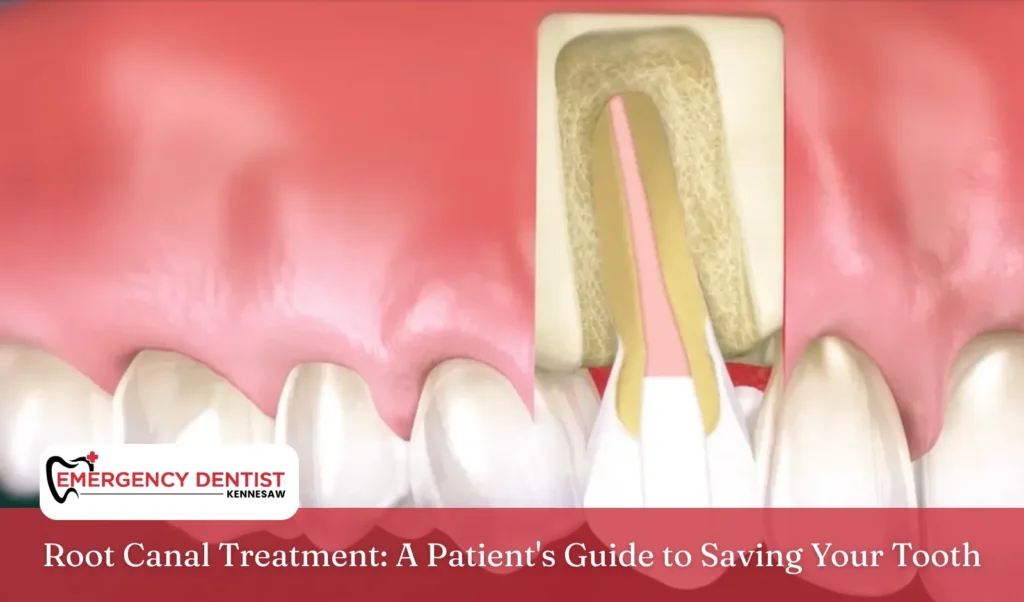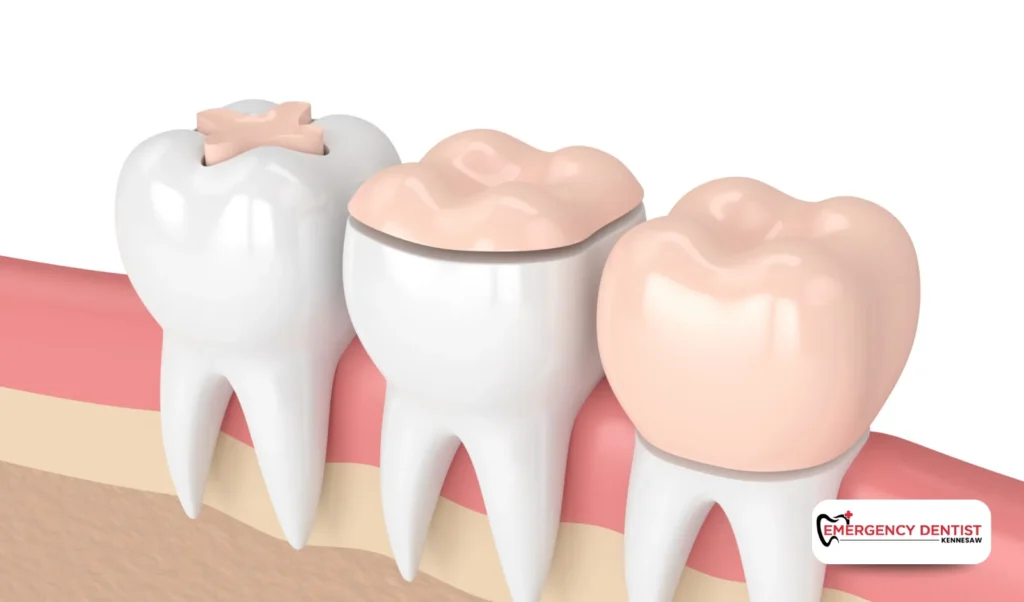Root Canal Treatment: A Patient's Guide to Saving Your Tooth

If you’re dealing with constant tooth pain, it might not just be a cavity. Sometimes the discomfort signals a more serious issue deep inside the tooth. This is where root canal treatment comes in. Understanding what a root canal is and how it works can help ease anxiety and lead to quicker treatment. An infected tooth should not be ignored, delaying care can lead to more complicated dental problems. If you’re experiencing symptoms, an Emergency Dentist in Kennesaw can help.
What Is Root Canal Therapy and Why It's Needed
Let’s begin by answering the question: what is root canal therapy, or simply, what’s a root canal?
This endodontic treatment focuses on the soft tissues inside the root of the tooth, specifically the pulp, which contains blood vessels, nerve tissue, and connective tissue. When the pulp becomes inflamed or infected due to tooth decay, trauma, or cracks, root canal therapy is often the only way to save the tooth. This dental procedure removes the infection and preserves the structure, allowing the tooth to function normally again.
Root Canal Is for What Purpose?
People often ask, “Root canal is for what condition?” The goal of the procedure is to:
- Eliminate infection inside the tooth
- Relieve tooth pain caused by inflamed or damaged pulp
- Prevent further complications like abscesses or bone loss
- Save the natural tooth rather than resorting to tooth extraction
In short, it is a restorative dental solution aimed at saving a badly damaged or infected tooth.
What Causes Root Canal Treatment to Be Necessary?

It helps to know what causes root canal procedures to be recommended in the first place. Common causes include:
- Deep tooth decay reaching the nerve tissue
- Cracks or chips from accidents or hard chewing
- Repeated dental procedures on the same tooth
- Sudden trauma or injury
- Infection spreading from untreated cavities
Left untreated, an infected tooth can lead to swelling, pain, and even systemic health issues. Regular dental checkups are important to catch signs early.
Tooth Root Canal Process: How Is a Root Canal Done?
Understanding how a root canal is done can take the fear out of the process. Here’s a simplified breakdown of the tooth root canal process:
- Diagnosis and X-rays An emergency dentist or root canal specialist will take dental X-rays to determine the extent of the damage. This step confirms whether root canal therapy is the right treatment option.
- Numbing the Area Local anesthesia is administered to numb the area and ensure a pain-free experience.
- Accessing the Tooth A small opening is made in the crown of the tooth to reach the pulp chamber.
- Removing the Infected Pulp The soft tissues, including the infected or inflamed nerve tissue, are removed using specialized instruments.
- Shaping and Cleaning The root canals are thoroughly cleaned, disinfected, and shaped to prepare for sealing.
- Filling the Root Canal A material called gutta percha is used to fill the root canals. This rubber-like material seals the space to prevent reinfection.
- Temporary Filling A temporary filling is placed to protect the area until a permanent crown or restoration is applied.
- Final Restoration A follow-up visit may be required to place a crown, especially if the treated tooth is a molar involved in chewing or biting.
Why Prompt Treatment Matters

Delaying this dental procedure can lead to more serious complications. Infections in the root of the tooth can spread to the jawbone or nearby teeth. Early symptoms that may indicate the need for root canal treatment include:
- Persistent tooth pain
- Swollen or tender gums
- Pain during chewing or biting
- Darkening of the tooth
- Pus or a bad taste in the mouth
If you notice any of these signs, see an Emergency Dentist in Kennesaw immediately to prevent the problem from worsening.
Post-Treatment Care and Expectations
After the root canal procedure, it’s normal to feel some sensitivity. Most patients manage discomfort with over-the-counter medications. The treated tooth may feel slightly different, but this usually subsides within a few days.
Here are some good oral hygiene tips for aftercare:
- Avoid chewing or biting on the treated tooth until the final crown is placed
- Brush and floss gently around the area
- Maintain good oral hygiene to prevent future infections
- Keep all follow-up appointments to ensure proper healing
With proper care, the treated tooth can last as long as your natural teeth, often for a lifetime.
When to Visit an Emergency Dentist in Kennesaw
Certain symptoms indicate that you should seek urgent dental care:
- Sharp, ongoing tooth pain
- Facial swelling
- Fever or signs of infection
- Injury resulting in broken or cracked teeth
- Pain that worsens at night or while lying down
A qualified Emergency Dentist in Kennesaw can provide fast relief, diagnose the problem, and begin treatment as needed. Whether it’s root canal therapy or another dental procedure, timely care can make all the difference.
Don’t Wait to Treat an Infected Tooth
Now that you understand what root canal treatment is and how the tooth root canal process works, you can feel more confident about seeking care. This safe, effective dental procedure addresses the root of the tooth problem while preserving your natural smile.
If you’re experiencing symptoms of an infected tooth, don’t wait. Reach out to an Emergency Dentist in Kennesaw. Prompt treatment can relieve your pain, save your tooth, and restore your oral health for the long term.


